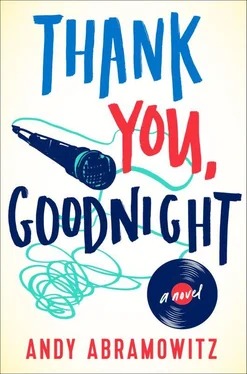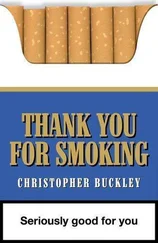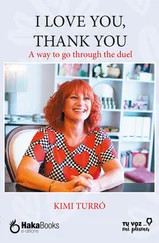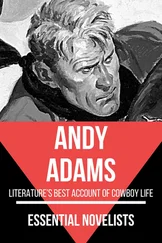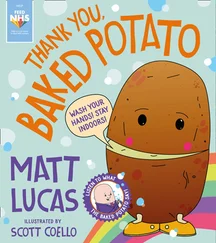Phoebe and I are now fifty or so yards away and I notice Sara checking her watch, then closing her book and sitting up. Spotting us right on time, she waves eagerly, with all the joy and gratitude in the world, like she’s been waiting forever to see us. It’s the way I imagine Alaina’s grandfather waved to her at the airport when she made it back to Shanghai. It’s the way I felt the first time Mackenzie showed up at my apartment with her bass, drawing me into a two-decade entanglement during which I confused the way I felt about making music with the way I felt about her. I suppose the world will have to end and kick in again before these moments return and offer everyone a second chance.
With a gleeful shriek, Phoebe detaches herself from my hand and starts sprinting ahead to her mother. Then she breaks her stride and pivots back toward me, interrupting herself with her own scattered thoughts. With a randomness that never fails to delight and enchant me, to make me right, to make me young, she asks how that baby crab from the other day learns to swim. Who teaches a crab to swim? she wants to know.
I’m going to have to go deep on this one. I’ll tell her about the things that are inside us, who we’re born to be, what we’re born to do, and how sometimes we never have a say in the matter, never even understand why. Like the rest of us, she’ll find that most of her life will pass before she grasps what I really mean. And I hope that of all the moments I’ve had, it will be this one—right here with her on this beach, in the irrepressible blush of a sinking sun—that returns to comfort me one day when the end comes.
The singularity of this hour staggers me. One day I’ll die, and this will be one of the things I did with my time.
Her question posed, Phoebe is hanging on my answer, her eyes expectant and wide, like the mouth of a river. Open to everything flowing toward her, but like nothing I’ve ever seen before.
I’m enormously grateful for the efforts of so many people whose contributions to this book cannot be overstated.
My agent, Caryn Karmatz Rudy of DeFiore and Company, for her tireless efforts on the many, many drafts, for her guidance, support, and encouragement for much longer than justified, and for all the terrific ideas that made their way into this book. And also for the Jell-O shots.
Sally Kim, my editor, for her truly amazing insights that made this book infinitely better, for her wells of enthusiasm, and for her guidance throughout this process. Heartfelt thanks to you.
Also to the rest of the team at Touchstone—Etinosa Agbonlahor, Susan Moldow, David Falk, Brian Belfiglio, Meredith Vilarello, Jessica Roth, Wendy Sheanin—thank you for your hard work and creativity.
Simon & Schuster for such tremendous, generous support.
David Small, for his novels that continue to be a source of inspiration, and for his workshop at Franklin & Marshall College, which demystified for me the process of creative writing.
Leslie and Ferne Abramowitz, my parents, two wonderful people whose love of books, music, and all other arts set this project in motion. I’m eternally grateful for that, and for so much more.
I got very lucky in the family department: Michelle (and Mitch) and Jon (and Stacy) (and their kids), siblings of mine that I’m fortunate enough to call friends, and my in-laws, Terry and Elliott.
My friends at Spector Roseman Kodroff & Willis, good lawyers and great people, and a firm that is, fortunately, quite unlike the one depicted in these pages.
Melissa, Jon, Amy, and Rich, for all their support early on, and for their friendship.
Chloe and Chelsea, two of the three most beautiful faces on the planet, and the people who show me every day just how lucky I am.
And most of all, my beautiful wife Caryn, with all my love, admiration, and gratitude. Our stories are my favorites.
TOUCHSTONE READING GROUP GUIDE

Teddy Tremble is nearing forty and has settled into a comfortable groove, working at a stuffy law firm and living in a downtown apartment with a woman he thinks he might love. Sure, his days aren’t as exciting as the time he spent as the lead singer of Tremble, the rock band known for its mega-hit “It Feels like a Lie,” but that life has long since passed its sell-by date.
But when Teddy gets a cryptic call from an old friend, he’s catapulted into contemplating the unthinkable: reuniting Tremble for one last shot at rewriting history. Never mind that the band members haven’t spoken in ten years, that they left the music scene in a blazing cloud of indifference, and that the only fans who seem to miss them reside in an obscure little town in Switzerland—can Teddy manage to snooker his bandmates out of their adult lives and find his way back to the top of the charts?
1. What motivates Teddy to return Warren’s call and visit the Tate Modern museum in the first place, instead of ignoring it? How do Teddy’s motivations change throughout the course of the novel?
2. How appropriate is the title of Heinz-Peter’s exhibit, “Faded Glory: Where Do They Go When They Have Nowhere to Go?” Consider how the novel portrays Teddy’s idea of legacy and our societal fascination with the cult of celebrity.
3. Teddy is a great observer of character of the people around him (“When she’s not busy composing tripe, Barbara enjoys a preoccupation with her gluten allergy”), but has trouble seeing himself clearly, insisting that he was “nothing special” despite his earlier success. How does the way other people see him affect how he values himself? In what ways does his journey throughout the book change and/or clarify his self-perception?
4. Consider this excerpt, as Teddy describes the beginning of his relationship with Sara: “I was an open door, that’s all, and she walked through it.” How does their relationship evolve over the course of the novel? How does it compare to Teddy’s relationships with the other women in his life, Lucy, Mackenzie, Alaina?
5. Although Teddy and Sara have lived together for many years, they seem very separate. There are a lot of things they don’t do as a couple, and there doesn’t seem to be much in the way of healthy communication between them. Who do you think is more to blame for the distance in Sara and Teddy’s relationship?
6. How do Teddy’s more ridiculous (and hilarious) antics, such as his fight with Heinz-Peter or drinking whiskey in a high school gymnasium with Warren, affect the tone of the novel? Which of Teddy’s absurd behaviors was your favorite?
7. Mackenzie says, “I didn’t think it would be this hard to look you in the eye.” Compare and contrast how each character regards the past: Teddy, Sara, Warren, Mackenzie, Jumbo, Alaina. How does each character react to the intrusion of the past into their present life?
8. Consider Teddy’s observation: “The lanes of the highway were thick with cars, each one driven by some poor son-of-a-bitch doing very little other than growing older.” What does this reveal about Teddy’s attitude toward aging? Compare and contrast how each of the characters approaches aging, either reconciling or fighting it.
9. “If our first two albums were about the youthful disturbances of desire, claiming what the universe owed me and showing my God-given entitlement to it by slinging a guitar strap around my neck, this third album was about finding my way back, reclaiming myself.” Is Teddy successful at “reclaiming” himself? Why or why not?
10. How does Sonny Rivers’s legacy help Teddy find his own? What do you think Sonny wanted to tell Teddy, but never had the chance to?
Читать дальше
